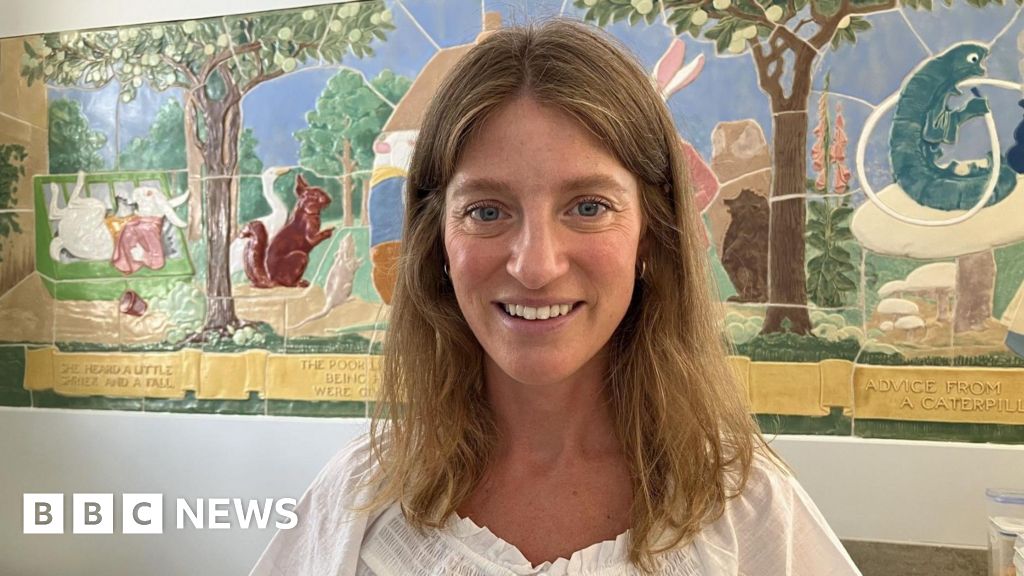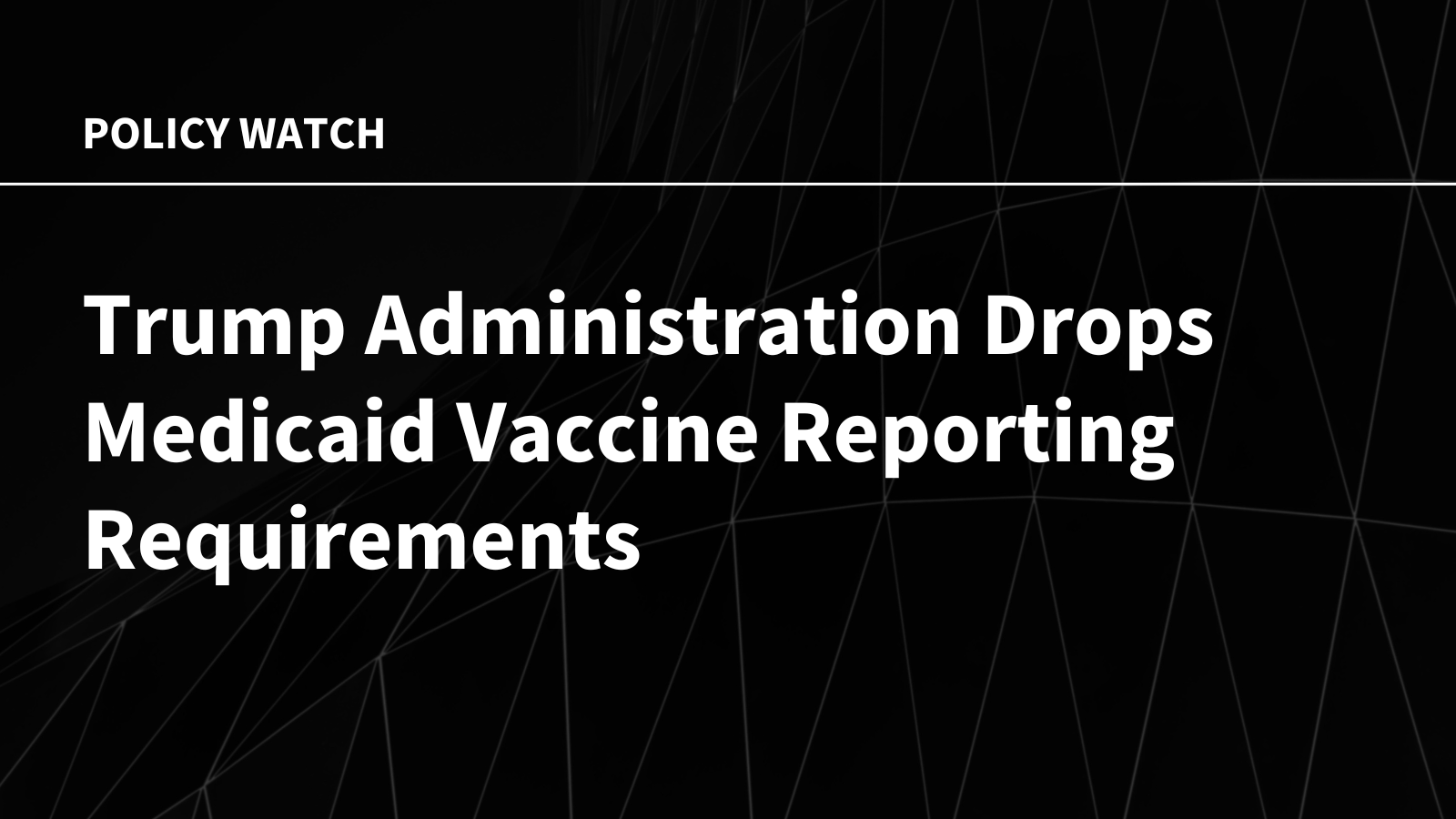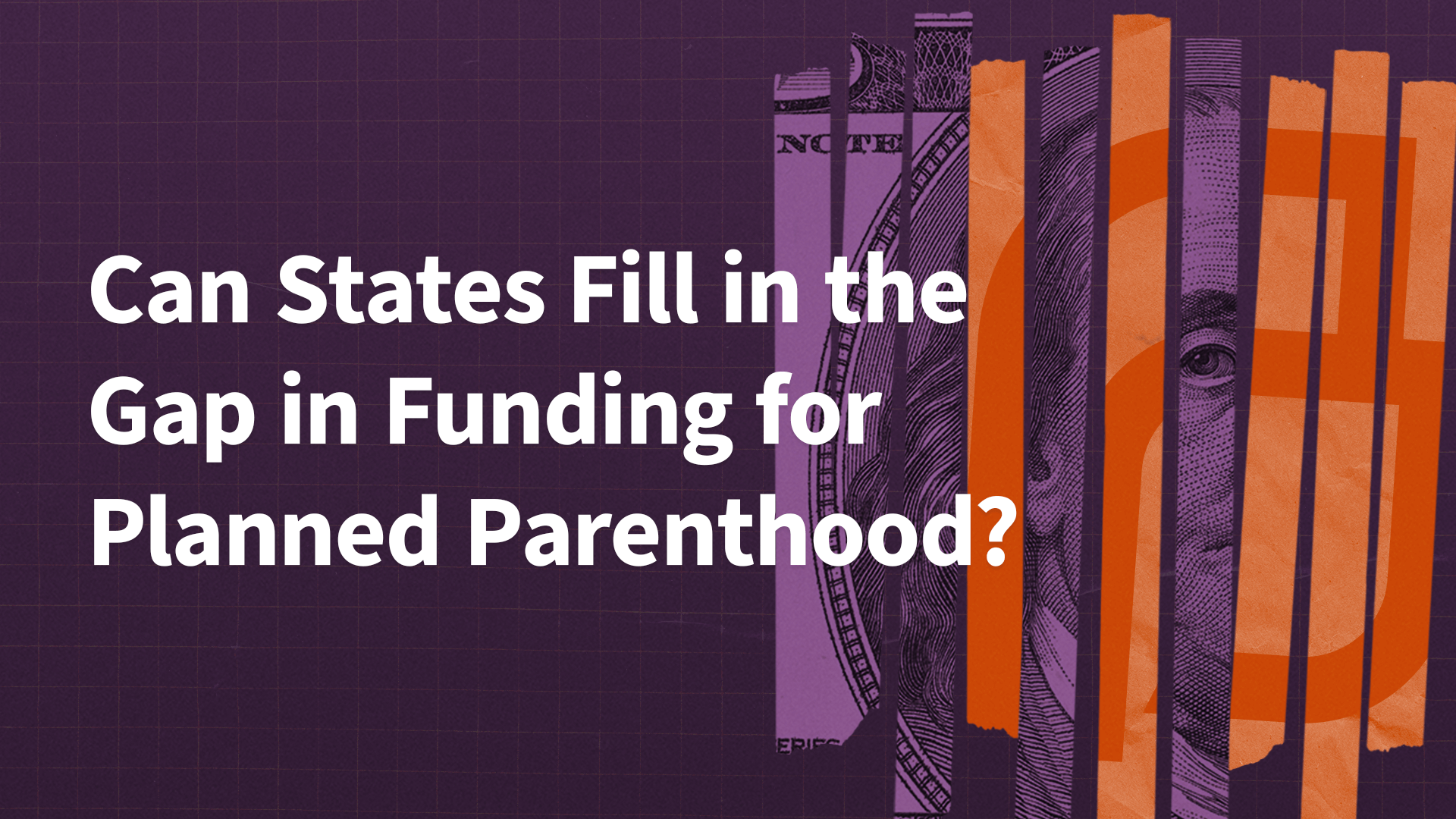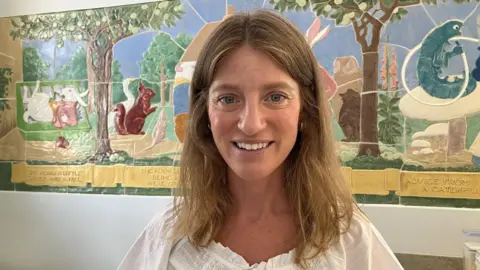 BBC
BBCCharlotte Creevy’s son Seth was two weeks old when he stopped breathing and was rushed to intensive care at a London hospital.
“What kept going through my mind was, ‘Is he going to live or die?'”
Charlotte said Seth had contracted three viruses and needed respiratory support.
Thankfully Seth recovered and returned home after being treated at the paediatric intensive care unit (PICU) at St Mary’s Hospital in Paddington for three weeks in October 2022.
Now a “first of its kind” support service by the charity Cosmic is being rolled out at the hospital to help parents like Charlotte cope with the trauma of experiencing their child going into intensive care.
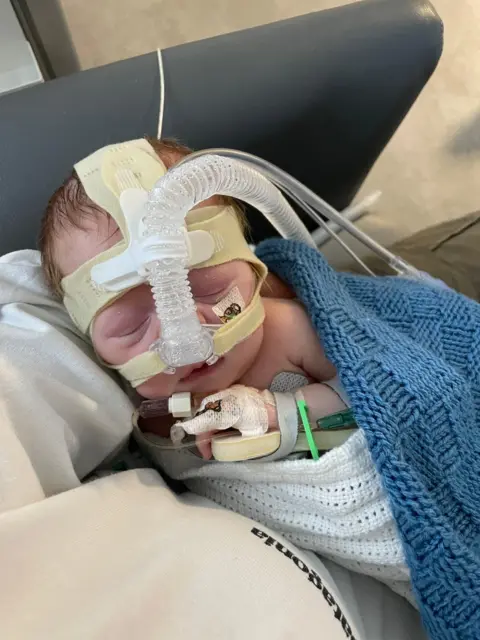 Charlotte Creevy
Charlotte Creevy“It was awful. I would cry because it was hard not knowing what would happen to Seth,” Charlotte added.
“I was only two weeks postpartum after an emergency C-section, so I was physically not in a good way anyway.”
While she was watching over Seth in intensive care, his twin brother and one-year-old sister were being looked after by their grandmother.
“Adding to it all, I was feeling guilty that my other two children were away from their mum.”
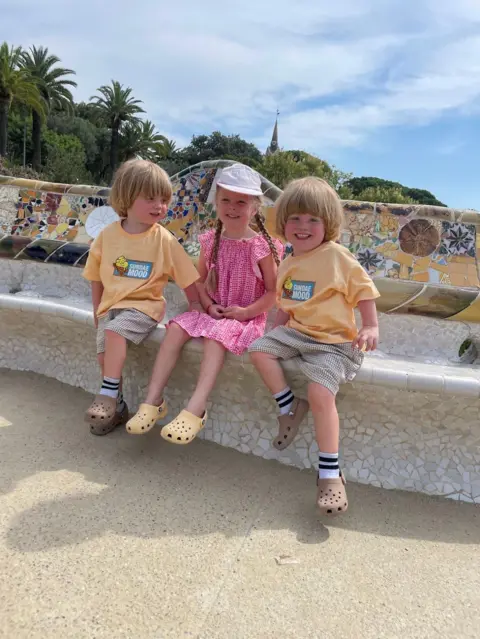 Charlotte Creevy
Charlotte CreevyChief executive of Cosmic, Susannah Forland said “things like the beeping of a fridge can trigger trauma or flashbacks”.
She added: “The impact can be long-lasting and far-reaching after the families return home.
“Our service will bridge the gap between hospital and home, providing a vital safety net during one of the most emotionally vulnerable times in a parent’s life.”
Research at St Mary’s Hospital found that early intervention helped reduce symptoms of PTSD and other long-term mental health issues among parents, following their child’s discharge from intensive care.
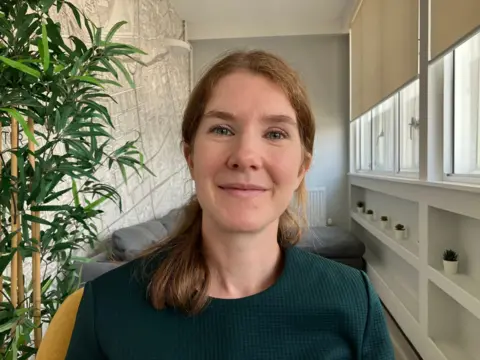
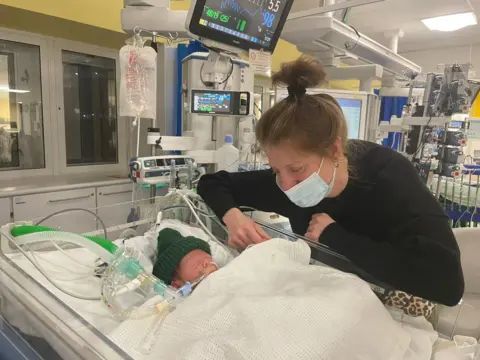 Charlotte Creevy
Charlotte Creevy“Surviving intensive care is a huge relief, but it can also mark the beginning of a complex emotional journey,” said Dr Simon Nadel, a consultant in paediatric intensive care at St Mary’s Hospital, who was involved in the research.
“We’ve found that 75-80% of parents develop PTSD after their children are discharged from intensive care units. That can have long-term effects, such as the avoidance of returning to hospital in the future.
“Our new post-discharge support service is a proactive, compassionate response to the psychological impact parents often face.”
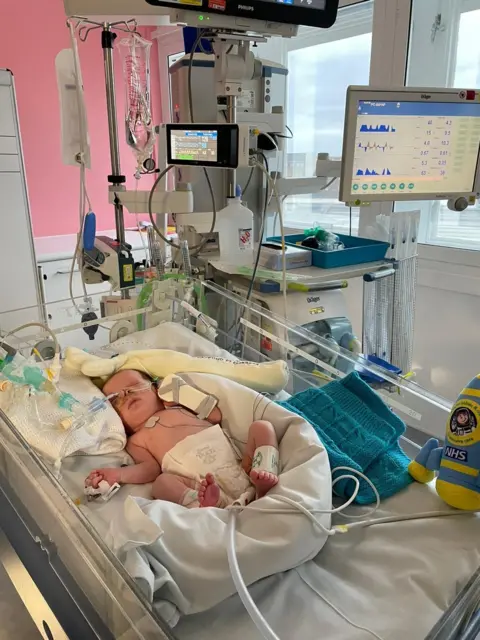 Charlotte Creevy
Charlotte CreevyCharlotte said the image of baby Seth being taken from her side to be resuscitated still stays with her.
Long after he left hospital, she would become extremely anxious when any of her children fell ill.
She said support from the charity made a big difference: “Cosmic put me in touch with a psychologist so I could start to process some of the emotional stuff going on.”
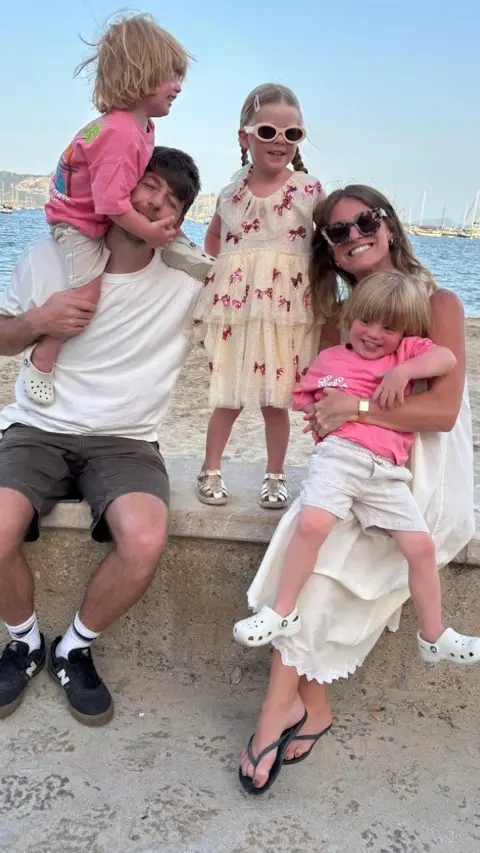 Charlotte Creevy
Charlotte CreevyAfter a successful pilot, Cosmic is funding and delivering the post-PICU service on a permanent basis.
It involves providing parents with a booklet containing information and coping mechanisms, a follow-up telephone call by trained staff, and ongoing referral for counselling where needed.
Cosmic supports the children’s intensive care units at St Mary’s and Queen Charlotte’s & Chelsea hospitals.
The charity hopes its post-PICU service will be rolled out across other NHS hospitals in the future.



